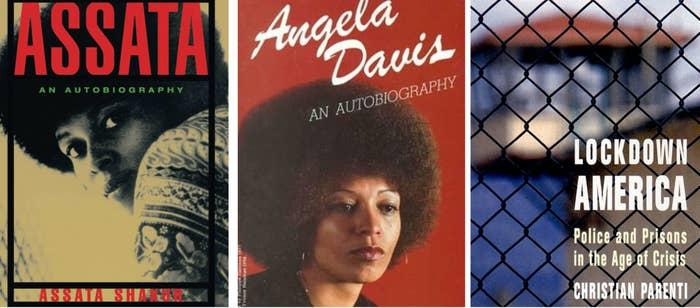The Negro Subversive
Incarceration of the Mind

America’s 51st state, the state of incarceration in which 2.3 million people are held, is made up of jails and prisons where the right of human beings to read, learn, study and think freely is constantly under attack. This right is attacked in two ways: through a regime of censorship that lets prison officials govern the minds as well as the bodies of the incarcerated and through financial burdens placed on inmates who seek reading and study material. In some jurisdictions, like Texas, there’s a published list of books that are banned in prisons and jails. Books on African American history and books teaching men about the evils of rape culture are considered too dangerous for incarcerated folks to get their hands on. Other jurisdictions are more subtle and only release their lists when required by federal law through Freedom of Information Act (FOIA) requests. Washington D.C.’s locally governed jails and the Federal Bureau of Prisons leave inmates’ right to information up to the wide discretion of prison and jail officials. D.C. jails allow mailroom staff to reject books sent to inmates for a variety of reasons, the vaguest one being if a corrections official feels a book “creates a substantial danger to the emotional or mental health of the receiving inmate.” This authority, which requires no input from experts in mental or emotional health, seems an invitation for prison mailroom staff to play therapist using the civil rights of jailed D.C. residents as a stage prop.
Since Congress closed D.C.’s only prison in 1997, D.C. residents convicted of a felony can be shipped to any one of the 37 federal prisons; which means they can be sent anywhere between Virginia and Hawaii. For these stateless prisoners, arbitrary distance from home and family is combined with arbitrary restrictions on their access to information. The warden of each federal prison is empowered to keep from his or her prisoners anything which they decide “presents a threat to good order or discipline,” or that “is likely to have an adverse effect on the prisoner’s physical or mental condition.”
It’s tempting to focus on lists like Texas’s that ban tens of thousands of books, but bans far more arbitrary and vaster can be hidden behind a few lines of dry regulatory text. We simply don’t know what’s banned in D.C. jails and the far-flung federal prisons where D.C. residents are sent until someone tries to send a particular book to an inmate and gets told they can’t.
As much as prisons are places of mental and physical confinement, they are also sites of deep and constant economic exploitation. The broadest form of book banning keeps the incarcerated from accessing books at cheap or even reasonable prices by forcing them to buy books directly from publishers as opposed to ordering cheaper used books or receiving free books from friends and family. Some jurisdictions force inmates to buy new books from a small list of approved vendors or force inmates to buy expensive prison issued tablets to access e-books. In 2018, the Federal bureau of prisons tried to force inmates to pay a 30% surcharge on top of the purchase price of a new book. As often happens on both the state and federal levels, public outrage forced the bureau to backtrack. Public outrage is often the only meaningful protection a prisoner’s right to read has, because Congress and the federal courts have attacked prisoners’ right to protect their constitutional rights through lawsuits as consistently as corrections personnel have conspired to make these rights meaningless.
